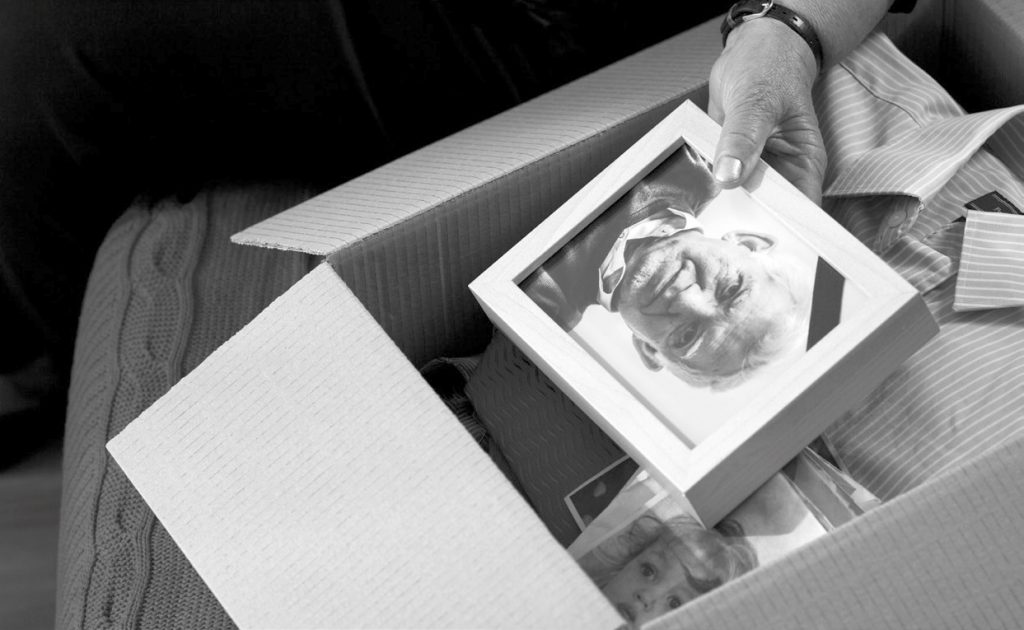News
Happy holidays!
As the holiday season begins, FADOQ extends its warmest wishes to you. May this ti...
 Aging brings about many changes that can affect every sphere of our lives. It inevitably involves loss and, as we age, we become increasingly likely to experience grief. Loss of vision, hearing, mobility, and agility and cognitive loss lead to other types of loss, like being forced to give up certain activities.
Aging brings about many changes that can affect every sphere of our lives. It inevitably involves loss and, as we age, we become increasingly likely to experience grief. Loss of vision, hearing, mobility, and agility and cognitive loss lead to other types of loss, like being forced to give up certain activities.
“EACH PERSON EXPERIENCES THE RESULTING GRIEF AND MOURNS THE LOSS OF THEIR ABILITIES VERY DIFFERENTLY” (1).
Giving up important activities, retiring, moving, relinquishing your driver’s licence, and experiencing a rapid decline in independence are all losses that involve grief.
Grief can have many different causes. In addition to the losses mentioned above, there is also grief caused by the death of a spouse, parent, brother, sister, and so on.
“AS YOU GET OLDER AND ESPECIALLY AS YOU REACH AN ADVANCED AGE, THE PROBABILITY OF LOSING LOVED ONES INCREASES” (2).
Losses become more frequent with age, but that doesn’t mean they get any easier to deal with. Grieving is hard and provokes strong emotions. It is very important to avoid trivializing a senior’s suffering.
“LOSS CAN ALSO AWAKEN OR REKINDLE OTHER GRIEF, MAKING THE EXPERIENCE EVEN MORE COMPLEX AND DIFFICULT” (2).
Sometimes grief can be overlooked or ignored, such as (2) :
Ambiguous loss occurs when a person with cognitive impairment, such as Alzheimer’s disease, is still physically present, but becomes increasingly psychologically and emotionally absent (3). Sometimes they change so drastically that they become unrecognizable, which can feel like losing a loved one while the person is still alive. Caregivers are particularly susceptible to ambiguous loss.
As losses accumulate, seniors may feel increasingly lonely. For example, losing a spouse and a friend or neighbour can amplify one’s loneliness. The amount of contact and social interaction experienced by the individual may dwindle over time.

In other words, a person’s social network may unravel as they age, causing them to be more and more isolated (2). Very elderly people may have lost many or even most loved ones of their own generation (4).
Without minimizing how difficult aging can be, it is important to acknowledge the uniqueness of each person’s journey, the vast range of aging paths, and the complexity and richness of aging. Aging isn’t just a series of losses and grief.
This Réseau FADOQ program provides insight into the daily lives of older people with six awareness tests that promote proper treatment: vision, hearing, mobility, agility, cognition, and losses.
LEARN MORE:
Contact us by phone | BIENTRAITANCE.CA
Here’s a list of resources that can help grieving seniors and their loved ones. Sometimes professional help is needed to navigate grief.
811
Dial 811 for quick access to a psychosocial health professional. The service is available 24/7.
1-866-627-8653
Little Brothers’ mission is to welcome and support lonely seniors and alleviate their isolation by providing a caring, committed extended family for them during their remaining years.
1-888-533-3845
This toll-free helpline for anyone grieving the death of a loved one is available 10 a.m. to 10 p.m., 7 days a week.
1-866-277-3553
1-866-277-3553 is the provincial suicide prevention hotline. It also provides services for those grieving a death by suicide.
1-855-852-7784
Caregiver Support is a free and confidential phone consultation, information, and referral service for caregivers of older adults, as well as their friends and family, practitioners, and health care professionals.
REFERENCES
1. Grenier, J. (2011). Regards d’aînés sur le vieillissement. Autonomie, reconnaissance et solidarité. Nouvelles pratiques sociales, 24(1), 36 50. https://doi.org/10.7202/1008217ar
2. Bourgeois-Guérin, V., Van Pevenage, I., Lachance, J., Blondin, R.-.A. et Marquis, A. (2018). L’expérience du deuil chez les personnes âgées : la fréquence rime-t-elle avec l’aisance? Dans V. Billette, P. Marier et A.-M. Séguin S. (dir.), Les vieillissements sous la loupe : Entre mythes et réalités (p. 213-220). Presses de l’Université Laval.
3. Société Alzheimer du Canada. (2013). Le deuil blanc. Ressource pour les personnes atteintes de l’Alzheimer ou d’une maladie apparentée et leurs proches. https://alzheimer.ca/sites/default/files/files/national/core-lit-brochures/ambiguous_loss_family_f.pdf
4. Bacqué, M.-F. (2004). Augmentation de la longévité, multiplication des deuils. Les nouveaux “vieux ” sont aussi de grands endeuilles. Études sur la mort, 2(126), 149-158. https://doi.org/10.3917/eslm.126.0149
Download Seniors and grief brochure (PDF file)